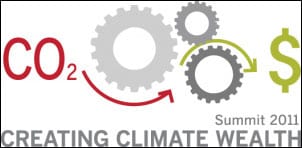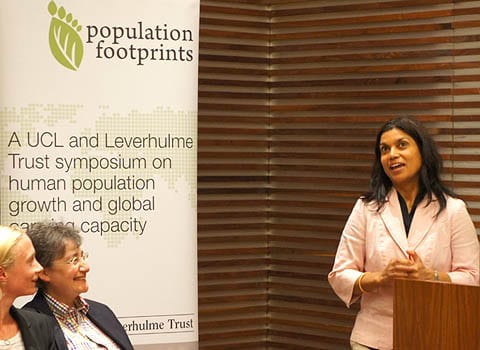Is it possible to solve climate change here and now and make money in the process?
By news editor, on 20 September 2011
The answer is “Yes”, according to the organisers of the Creating Climate Wealth Summit that took place at UCL on 13 and 14 September, writes Javier de Cendra de Larragan, Senior Research Associate in Energy and Law at the UCL Energy Institute.
Private entrepreneurs, consultants, policymakers and academics came together, under UCL’s roof, to devise ‘gigaton-scale’, market-driven, solutions to climate change that should do just that.
 And yet, the International Energy Agency has recently reported that 2010 won the dubious award of being the year with the highest greenhouse gas emissions on record.
And yet, the International Energy Agency has recently reported that 2010 won the dubious award of being the year with the highest greenhouse gas emissions on record.
While China and India accounted for most of the rise, emissions have also grown in developing countries. What are we going to make of this discrepancy? Of course, a cynic would say that it might be possible after all to make money with climate change, regardless of what emissions are doing.
Less cynically, one can argue that, while many firms are devising innovative solutions to mitigate climate change, none of these solutions have yet demonstrated a gigaton-scale potential. This is the nut that the Creating Climate Wealth Summit was intent on cracking. (more…)
 Close
Close


